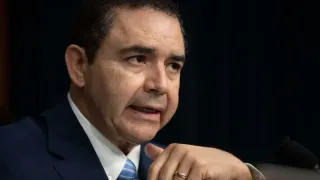June 18, 2020
Chief: Seattle Protest Area is Not A Police-Free Zone
READ TIME: 2 MIN.
Police will return to an area of a Seattle neighborhood being occupied by protesters if there are threats to public safety, the chief of police said after a business owner complained that officers didn't respond when he called 911 to report a break-in and vandalism.
"There is no cop-free zone in the city of Seattle," Chief Carmen Best said Monday. "I think that the picture has been painted in many areas that shows the city is under siege. That is not the case."
Police pulled back from several blocks of the city's Capitol Hill neighborhood near the East Precinct after clashes with people protesting the police killing of George Floyd in Minneapolis.
Now called the "Capitol Hill Occupied Protest," participants have painted a Black Lives Matter mural on the street, planted a community garden and handed out food in an atmosphere that has been largely peaceful and festive at times.
The situation has drawn the ire of President Donald Trump, who has claimed without merit that violent people had taken over. His tweets about possibly sending in the military have been met with condemnation from Seattle Mayor Jenny Durkan and Gov. Jay Inslee, both Democrats.
John McDermott, the owner of a Capitol Hill auto shop, told KIRO-TV he phoned authorities multiple times Sunday night about a break-in and vandalism.
Best said police had received a 911 call about someone breaking windows with a hammer and the caller reported that his business was on fire.
"The officers responded to the call and they observed the location from a distance. They did not see any signs of smoke or fire or anything else and they did not see a disturbance," Best said.
Best said officers have written multiple reports involving crimes in the area over the past two days.
She said dispatchers and officers are coordinating with crime victims or callers to meet police on the edges of the occupied area and officers will go in if there's an urgent situation.
Meanwhile, city workers have set up new barricades in an effort to improve local and emergency vehicle access.
City officials were negotiating with protest leaders about returning officers to the precinct station, which was boarded up after frequent hostile standoffs between police and protesters.
Transportation Director Sam Zimbabwe said his department was trying to work with protest organizers as the city planned barriers near the precinct, The Seattle Times reported.
"There's still a lot of concerns about what this is and how this operates," Zimbabwe said. "There's a lot of complicated demands."
Protests continued in Seattle Tuesday with Interstate 5 closing before 7 p.m. in both directions near downtown due to protest activity, according to the Washington State Patrol.






